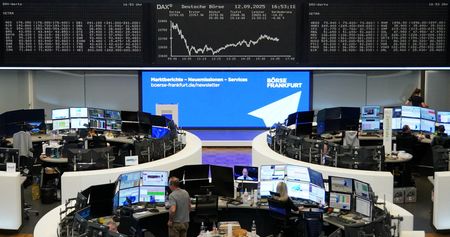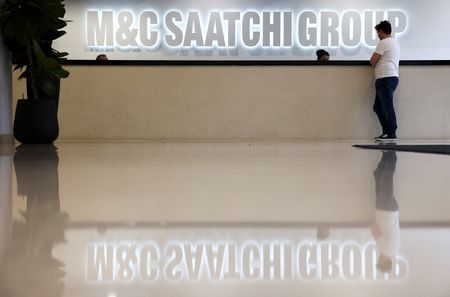By James Davey
LONDON (Reuters) – British fashion retailer Next reported a 13.8% rise in first-half profit and reaffirmed its full-year guidance on Thursday, but struck a cautious tone on the trading outlook, expecting the UK economy to weaken and its sales growth to slow.
The FTSE 100 company said it expects Britain’s job market to weaken in its second half to end-January 2026, with the effects of April’s employer tax increases continuing to filter through into the economy, dampening consumer spending.
Next has around 460 stores in the UK and Ireland and an online presence in more than 70 countries selling the Next brand and more than 700 others. With the UK accounting for around 80% of its sales, it is considered a useful gauge of how British consumers are faring.
The group said it still expected second-half full-price sales growth to slow to 4.5%, versus growth of 10.5% in its second quarter when it benefited from a cyberattack at rival Marks & Spencer.
Next maintained its forecast for full-year pretax profit of 1.105 billion pounds ($1.51 billion), up from 1.011 billion pounds in 2024/25. Pretax profit was 515 million pounds in its first half to end July.
Shares in Next were down 6.2%, paring 2025 gains to 18.6%, reflecting its cautious tone and the lack of another profit upgrade after three already this year.
While industry data last week showed British shoppers spent more in August, retailers are uneasy about how consumer confidence and spending could be impacted by tax rise speculation in the run-up to the budget on November 26.
Last month, 60 retail bosses wrote to finance minister Rachel Reeves, appealing to her to avoid imposing further taxes on the sector in the budget.
While Next CEO Simon Wolfson remained optimistic about the group’s own prospects, he said the medium to long-term outlook for the UK economy “does not look favourable”.
“At best we expect anaemic growth, with progress constrained by four factors: declining job opportunities, new regulation that erodes competitiveness, government spending commitments that are beyond its means, and a rising tax burden that undermines national productivity,” he said.
($1 = 0.7334 pounds)
(Reporting by James Davey; Editing by Sarah Young, Paul Sandle and Jan Harvey)









